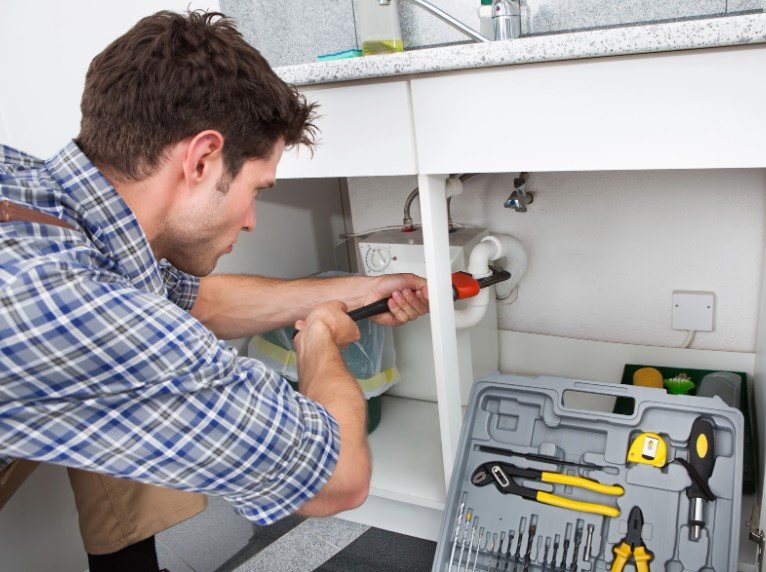Home Improvement
Key Tips to Avoid Major Plumbing Disasters Through Preventive Measures

In the landscape of home ownership, there lurk several uninvited complications, with plumbing disasters at the top of the list. Every homeowner has likely encountered the inconvenience of these issues at some point, such as blocked drains that impede water flow or leaky pipes that silently damage infrastructure. Ignoring these seemingly minor inconveniences often leads to major disasters, causing harmful consequences to both your residence and financial health. Therefore, this article aims to highlight the importance of preventive measures to tame these issues before they escalate. From providing a basic understanding of plumbing systems and their common failings, to stressing the importance of regular inspections and DIY preventive steps, and finally, underlining the role of professional plumbing services—we cover it all.
Understanding the Basics of Plumbing Systems
A plumbing system is akin to a complex labyrinth within your home, composed of interconnected pipes, valves, drains, and outlets, all playing their part in ensuring a smooth supply of clean water and efficient waste disposal. While the intricacy of these systems might seem perplexing, a basic understanding of them is instrumental in the early detection and resolution of potential issues. When a homeowner lacks this understanding, even a seemingly benign leak can result in a highly damaging incident. Such circumstances could entail extensive damage, threatening the structural integrity of the home which necessitates expensive professional intervention.
Common Plumbing Disasters and Their Impacts
Home plumbing disasters don elaborate disguises, presenting themselves as mere issues but carrying the potential to cause significant disturbance. From persistently leaky taps contributing to water wastage and increasing utility bills, sluggish drains turning into stubborn blockages, and malfunctioning water heaters engendering energy inefficiencies to sewer system back-ups creating sanitation concerns—the damages are multifaceted and myriad. Unfortunately, these can drastically disrupt our day-to-day life by inhibiting routine activities such as preparing meals, house cleaning, or even enjoying the therapeutic comfort of a hot bath. In addition, the monetary implications of these disasters are another concern, as prolonged neglect can result in costly repairs or replacements.
Importance of Regular Plumbing Inspections
The antidote to the poisonous effects of potential plumbing disasters lies predominantly in the accurate and timely detection of problems through regular plumbing inspections. These comprise a comprehensive examination of key components such as the water supply lines, drainage pipes, and water heaters to identify signs of first-stage damages like hairline cracks, minor leaks, or rusting. Professionals are ideally suited for conducting these inspections, as their trained eyes can spot hidden issues and suggest appropriate solutions. Neglecting regular inspections can allow minor issues to morph into significant problems, inevitably leading to escalated repair or replacement costs and substantial damage to property.
DIY Preventive Measures for Common Plumbing Issues
Fortunately, every homeowner can adopt some DIY preventive measures to manage common plumbing issues. A significant measure includes regular drain cleaning to avoid sink blockages. Observing attuned caution in disposal habits can prevent the issue at its root—for instance, properly discarding food waste and refraining from using toilets as a trash bin. Further, additionally paying attention to water pressure and regularly adjusting it can protect pipes from unnecessary stress. Routine DIY maintenance also involves checking the water heater settings to ensure energy efficiency. However, while DIY maintenance is important and effective to an extent, it is also crucial to recognise when professional intervention becomes necessary. In such situations, forcing a DIY solution may lead to greater complications and unintended damages.
Role of Professional Plumbing Services in Disaster Prevention
When it comes to plumbing, recognising the line between a simple DIY fix and a complicated scenario requiring professional intervention is vital. Professional plumbers offer expertise and the advantage of specialised equipment that ensure precise inspections and effective repairs—a scope that DIY methods cannot reach. Consequently, employing the wisdom of certified, experienced, and well-reviewed plumbing services can deliver peace of mind. These professionals have a proven track record of preventing minor issues from snowballing into major disasters, thus saving homeowners from hefty expenses and preventing significant property damage.
Conclusion
In conclusion, homeowners can avoid substantial plumbing disasters through simple, yet attentive preventive measures. By armoring oneself with a basic understanding of plumbing systems and exercising regular inspections, these uncomfortable and potentially devastating incidents can be nipped in the bud. The article also highlighted the critical roles of both DIY maintenance and professional plumbing services in the prevention of larger issues. Infrequent attention or downright ignorance of these measures can result in minor issues magnifying into significant disasters. As we wrap up this comprehensive discourse, let’s emphasise that diligent preventive measures are far cheaper than draining repair costs. Begin your preventive journey today and, remember, do not hesitate to consult professionals when in doubt.
-

 Entertainment1 month ago
Entertainment1 month ago123Movies Alternatives: 13 Best Streaming Sites in 2026
-

 Entertainment2 months ago
Entertainment2 months ago13 Free FMovies Alternatives to Watch Movies Online in 2026
-

 Entertainment1 month ago
Entertainment1 month ago13 Flixtor Alternatives to Stream Free Movies [2026]
-

 Entertainment1 month ago
Entertainment1 month agoGoMovies is Down? Here are the 11 Best Alternatives






